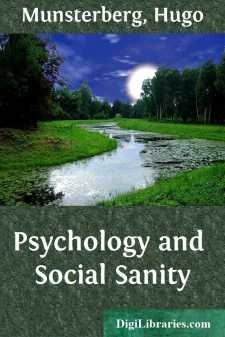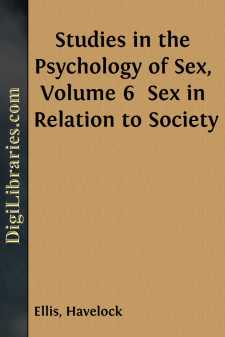Categories
- Antiques & Collectibles 13
- Architecture 36
- Art 48
- Bibles 22
- Biography & Autobiography 813
- Body, Mind & Spirit 142
- Business & Economics 28
- Children's Books 17
- Children's Fiction 14
- Computers 4
- Cooking 94
- Crafts & Hobbies 4
- Drama 346
- Education 46
- Family & Relationships 57
- Fiction 11829
- Games 19
- Gardening 17
- Health & Fitness 34
- History 1377
- House & Home 1
- Humor 147
- Juvenile Fiction 1873
- Juvenile Nonfiction 202
- Language Arts & Disciplines 88
- Law 16
- Literary Collections 686
- Literary Criticism 179
- Mathematics 13
- Medical 41
- Music 40
- Nature 179
- Non-Classifiable 1768
- Performing Arts 7
- Periodicals 1453
- Philosophy 64
- Photography 2
- Poetry 896
- Political Science 203
- Psychology 42
- Reference 154
- Religion 513
- Science 126
- Self-Help 84
- Social Science 81
- Sports & Recreation 34
- Study Aids 3
- Technology & Engineering 59
- Transportation 23
- Travel 463
- True Crime 29
Sort by:
CHAPTER I Any scheme of education must be built upon answers to two basic questions: first, What do we desire those being educated to become? second, How shall we proceed to make them into that which we desire them to be? In our answers to these questions, plans for education fall naturally into two great divisions. One concerns itself with ideals; the other, with methods. No matter how complex plans...
more...
by:
Hugo Munsterberg
PREFACE It has always seemed to me a particular duty of the psychologist from time to time to leave his laboratory and with his little contribution to serve the outside interests of the community. Our practical life is filled with psychological problems which have to be solved somehow, and if everything is left to commonsense and to unscientific fancies about the mind, confusion must result, and the...
more...
by:
Octave Chanute
CHAPTER I. EVOLUTION OF TWO-SURFACE FLYING MACHINE. By Octave Chanute. I am asked to set forth the development of the "two-surface" type of flying machine which is now used with modifications by Wright Brothers, Farman, Delagrange, Herring and others. This type originated with Mr. F. H. Wenham, who patented it in England in 1866 (No. 1571), taking out provisional papers only. In the abridgment...
more...
by:
Lothrop Stoddard
INTRODUCTION THE DECLINE AND FALL OF THE OLD ISLAMIC WORLD The rise of Islam is perhaps the most amazing event in human history. Springing from a land and a people alike previously negligible, Islam spread within a century over half the earth, shattering great empires, overthrowing long-established religions, remoulding the souls of races, and building up a whole new world—the world of Islam. The...
more...
CHAPTER I INTRODUCTION DRY-FARMING DEFINED Dry-farming, as at present understood, is the profitable production of useful crops, without irrigation, on lands that receive annually a rainfall of 20 inches or less. In districts of torrential rains, high winds, unfavorable distribution of the rainfall, or other water-dissipating factors, the term "dry-farming" is also properly applied to farming...
more...
by:
Hamilton Holt
COMMERCIALISM AND JOURNALISM In the United States of America, public opinion prevails. It is an axiom of the old political economy, as well as of the new sociology, that no man, or set of men, may with impunity defy public opinion; no law can be enforced contrary to its behests; and even life itself is scarcely worth living without its approbation. Public opinion is the ultimate force that controls...
more...
The Hidden Power To realise fully how much of our present daily life consists in symbols is to find the answer to the old, old question, What is Truth? and in the degree in which we begin to recognise this we begin to approach Truth. The realisation of Truth consists in the ability to translate symbols, whether natural or conventional, into their equivalents; and the root of all the errors of mankind...
more...
CHAPTER I CHOOSING A PLACE TO LIVE Blessed indeed are they who are free to choose where and how they shall live. Still more blessed are they who give abundant thought to their choice, for they may not wear the sackcloth of discomfort nor scatter the ashes of burned money. Most of us have a theory of what the home should be, but it is stowed away with the wedding gifts of fine linen that are cherished...
more...
by:
Myrtle Reed
THE CATCHING OF UNSHELLED FISH "First catch your hare," the old cookery books used to say, and hence it is proper, in a treatise devoted entirely to the cooking of Unshelled Fish, to pay passing attention to the Catching, or what the Head of the House terms the Masculine Division of the Subject. As it is evident that the catching must, in every case precede the cooking—but not too far—the...
more...
by:
Havelock Ellis
CHAPTER I. THE MOTHER AND HER CHILD. The Child's Right to Choose Its Ancestry—How This is Effected—The Mother the Child's Supreme Parent—Motherhood and the Woman Movement—The Immense Importance of Motherhood—Infant Mortality and Its Causes—The Chief Cause in the Mother—The Need of Rest During Pregnancy—Frequency of Premature Birth—The Function of the State—Recent Advance...
more...











